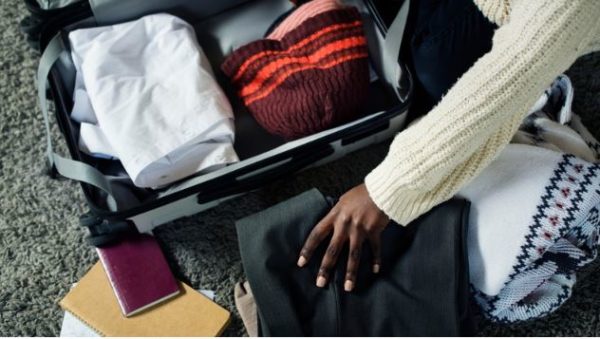Lifestyle
How to avoid overweight baggage fees

It is easy to overpack and fill bags to the brim, so holidaymakers should think twice about what they truly need because there is no worse start to a holiday than unexpected and unwanted charges.
To make it worse, overpacking and taking a hold bag can also seriously delay the arrival experience because of waiting times at the baggage carousel.
To avoid inconvenience, people should avoid overpacking at all costs and stick to hand luggage on shorter trips.
The rules surrounding cruise luggage are far more straightforward than what you’ll find on a flight; most cruise lines have a 90Kg limit.
Below are top tips to help savvy holiday-goers avoid the extra baggage fees:
1. The pillow trick
This hack involves bringing a pillowcase full of clothes to disguise as a comfy pillow on the aircraft. Many travellers have said they have successfully used this trick to avoid fees for overweight baggage. A former flight attendant’s viral TikTok makes this hack famous, and there is now concern that airlines may stop letting people bring on their pillows as more customers brag online about beating the system.
2. Use duty-free bags
Duty-free bags don’t count as carry-on baggage, so if passengers buy something in a duty-free shop, they can use the bag they provide to add in their extra heavier items. This hack is great for people who want to bring an additional item on board without breaking the strict one-small-bag rule. Simply wear layers through security and then place them in a duty-free bag afterwards.
3. Travel in the heaviest clothing
Perhaps one of the oldest tricks in the book, wearing the heaviest clothes while travelling is a great way to keep to weight restrictions. Holidaymakers who wear their bulkiest items, like hoodies, coats, and heaviest shoes, will make more room in their case and keep extra warm on the plane. Travellers should use the pockets of their bulky clothing to stash more items if they are still concerned about the weight of the case.
4. Invest in a Travel Vest
Wearable luggage, which offers a multitude of pockets to cram in small items, would be a great investment for frequent flyers who don’t want to pay extra for baggage. They are incredibly functional, often lightweight items that travellers can use to store their valuables and gadgets safely.
5. Layer up
Although sometimes impractical, layering up is a great way to free up baggage space. Under a coat, no one will ever know there are eight bikinis, five tops and a hoodie. As soon as travellers get on board, they can strip down to their original outfit because, technically, no one can say anything. While this strategy can involve holiday-goers wearing an entire wardrobe on the flight, if desperate to travel cheaply, this is an option.
6. Invest in the best travel bag
Airlines can be very strict about the size and weight of hand luggage and suitcases. For this reason, investing in a lightweight bag makes sense so that travellers can pack in heavier items. Many viral hand luggage bags have also been made popular by social media. Available to buy online, these fit the specific measurements of each airline’s policy.
7. Scrap the toiletries
Toiletries are very heavy, so to avoid excess baggage charges, it is a good idea to buy them all on arrival at the destination. Whatever they can buy at home, travellers should be able to buy abroad. They should be a little cheaper, too, with any luck. The reduced weight also has an environmental benefit when flying too.
8. Save space for souvenirs
Bringing home souvenirs from various parts of the world is a big part of many people’s travel experiences. Planning for the extra additions to luggage for the trip home is an integral part of the packing process, or holiday-goers risk a hefty charge on the way home.
9. Shop around
If wanting to bring extra luggage for a longer trip, holidaymakers should shop around and weigh up the baggage options of various airlines. Certain airlines offer heavier check-in bags with standard fares. Most will offer a range of weight options, generally between 10kg and 30kg, so travellers should consider the allowance and cost together to give them a per-kilo rate and get the best possible deal.
Travellers wanting to holiday without being restricted or charged for their baggage should consider a cruise as an alternative to air travel.






